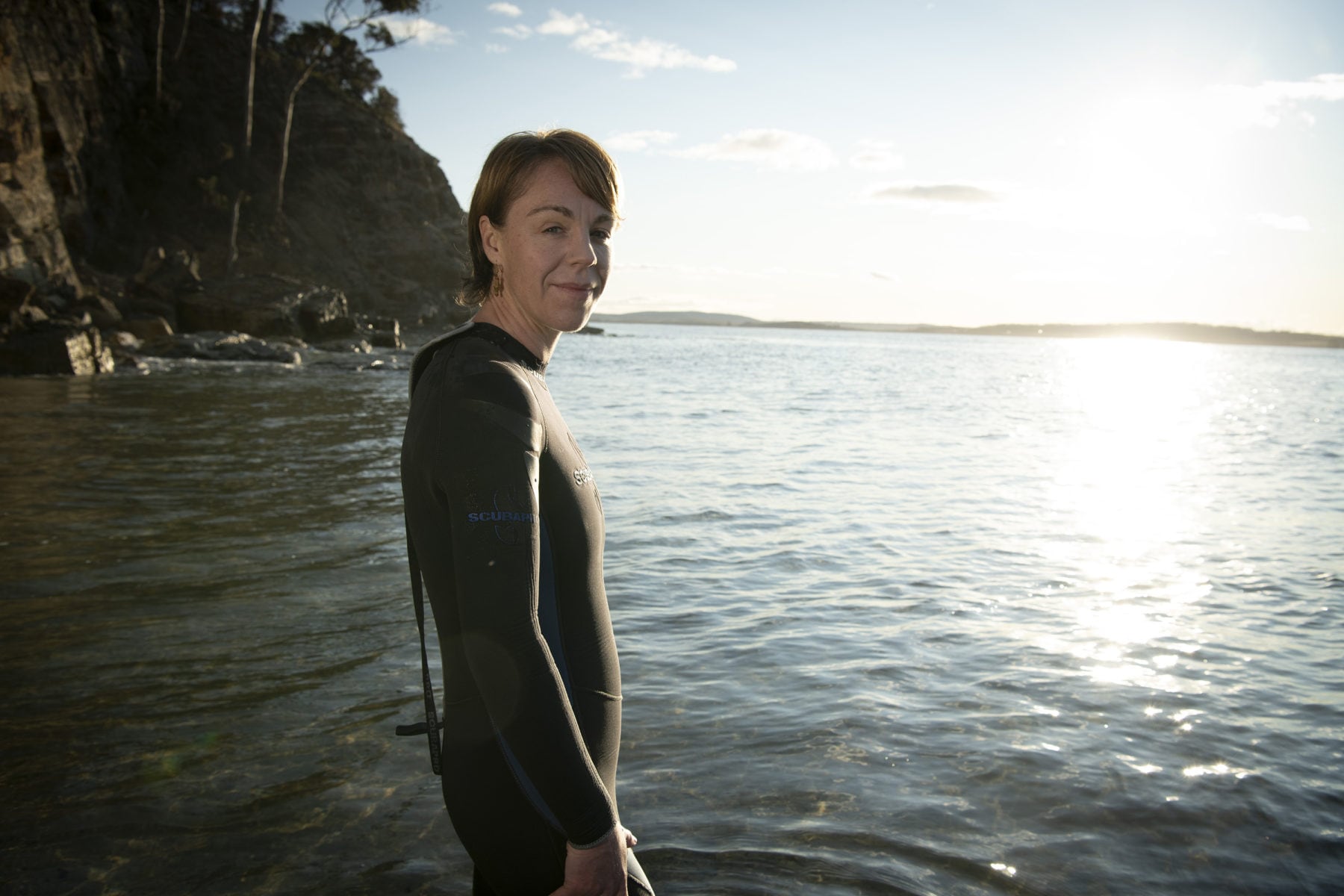Dr Jess Melbourne-Thomas considers the moment she slipped through thin sea ice and plunged into the teeth-rattling waters of the Southern Ocean as the highlight of a research voyage to Antarctica in 2012. Momentarily dis-tracted by a minke whale that popped its head up through a hole in the ice, Jess missed her otherwise careful footing.
It is a delightful and revealing recollection from a scientist dedicated to the preservation of fragile marine ecosystems and passionate about expanding the role of science in informing public policy on climate change. Her dedication has led to her to being named Tasmanian of the Year for 2020.
Equally characteristic is the way Jess swiftly deflects any personal glory, preferring instead to acknowledge the contributions of the other Tasmanian finalists, two of whom were also women working in science.
This year marks the 60th anniversary of the respected federal government-run award and, along with 38-year-old mother of two and marine scientist Jess, the seven other state and territory finalists for the 2020 national honour range from medical practitioners to musicians and from educationalists to sportspeople.
Each state and territory around the nation announced its recipients for the 2020 Australian of the Year back in October/November 2019. The national result will be announced in Canberra on the eve of Australia Day, 25 January, along with the Senior and Young Australians of the Year and the Local Hero winner.
The mix of disciplines in 2020 closely mirrors the history of the award, which was first given to virologist and Nobel Laureate Sir Macfarlane Burnet in 1960 and subsequently awarded to opera singer Joan Sutherland and America’s Cup skipper Alexander ‘Jock’ Sturrock in the ensuing two years.
Since then there have been military personnel, politicians and entrepreneurs, including Dick Smith who was announced as Australian of the Year just as Australian Geographic launched in January 1986, and the occasional controversial figure such as Alan Bond.
Jess acknowledges that Australian of the Year has often captured the zeitgeist. “These awards reflect the times, and nowadays hopefully recognise how important science has been, and continues to be, not only in understanding what’s changing but also how we can respond to those changes,” she says.
Jess’s journey began in and around the waters of Hobart where she learnt to scuba dive as a teenager and, along with her father and brother, explored the island’s giant marine kelp forests.
“The magical experience of diving in a kelp forest is like flying through a jungle surrounded by an amazing diversity of life,” says Jess. “Those forests are now effectively gone because of climate change. It makes me sad when I think my kids won’t have that same experience and get to see those environments the way I did.”
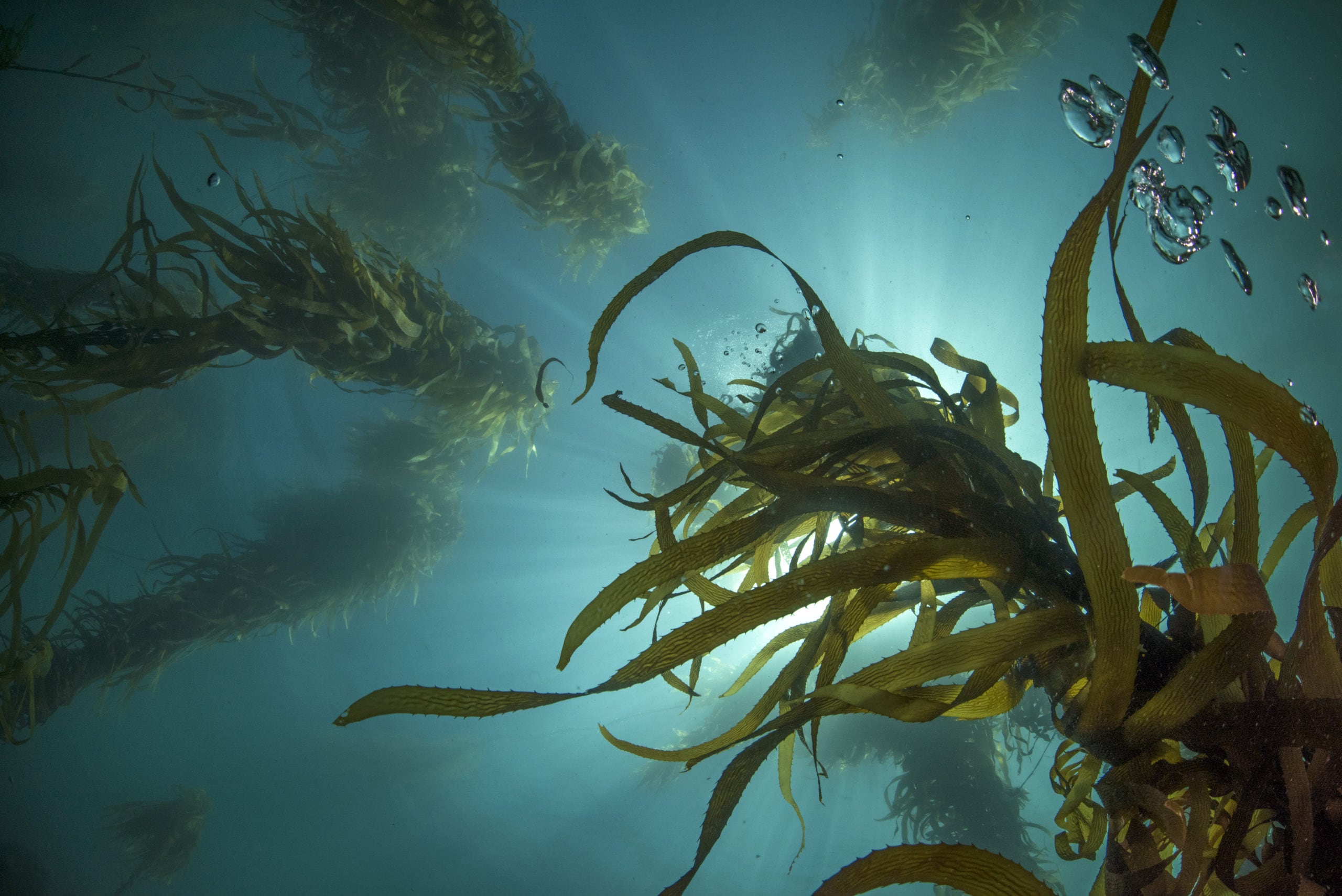
The young Jess aspired to be an Antarctic scientist and in 2003 took up an opportunity to study as a Rhodes Scholar at Oxford University in the UK where she specialised in coral reefs. It opened her eyes to the dramatic effects of climate change and other human impacts, such as overfishing and nutrient input on delicate marine ecosystems.
On returning home to Hobart and gaining her PhD in 2010, Jess landed a role with the Antarctic Climate and Ecosystems Cooperative Research Centre and later with the Australian Antarctic Division, where she sailed aboard Aurora Australis to conduct the sea ice studies that saw her briefly sharing the waters with that spy-hopping whale.
She co-founded a global network for women in polar science to address some of their particular issues, such as extended periods spent away from home and children, and the fact that traditionally it has been a male-dominated field. This evolved into the Homeward Bound project, which Jess co-founded in 2014, that aims to take 1000 women to Antarctica over 10 years to workshop collaborative international responses to climate change against the backdrop of an inspiring environment where its physical effects are clearly evident. The initiative has since broadened its focus to advocate for greater diversity generally in leadership, science and decision making in tackling the major environmental issues.
“I’ve come from being interested in understanding the fundamentals of ecology to thinking more about how humans interact with ecosystems and how we can better connect knowledge to decision making,” Jess says of her latest role as a CSIRO transdisciplinary researcher and knowledge broker.
“We have this traditional model where scientists go off and do their work, write a paper and publish it in a journal and hope that somebody who needs it picks it up and is able to make some kind of decision based on the information. But it doesn’t work anymore because so many of the problems we have now are very urgent, and we need more efficient ways to connect science to policy.”
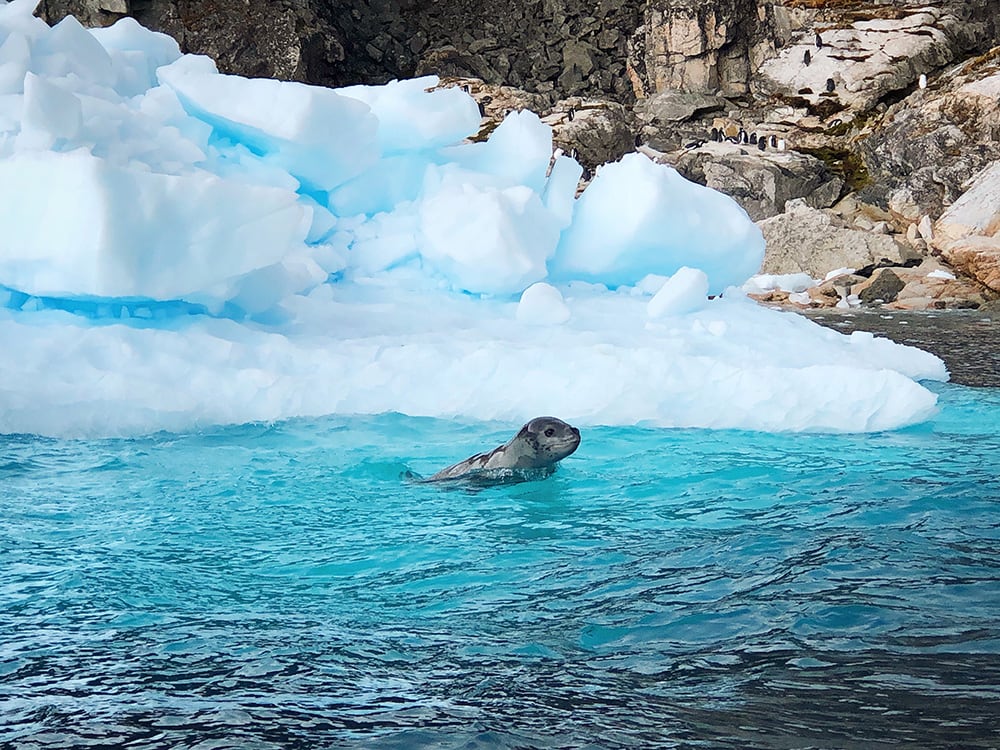
Jess is focused on finding ways to address the big challenges in the marine environment by involving multiple stakeholders to better understand their needs and develop models or research to find solutions to specific problems. She’s committed to broadening the scope to include non-traditional information sources, such as Indigenous knowledge, alongside that of mainstream science.
It’s the kind of fresh and innovative thinking needed to tackle the planet’s grand-scale problems and Jess sees her Tasmania Australian of the Year honour as an opportunity.
“The pool of nominees was just incredible, and hearing about people making change in their communities, and becoming immersed in all the wonderful stories of people who won awards in the past is so inspiring,” she says. “It’s a platform for talking about the things that are so important in the world today and where we need to see change, and so, hopefully, I can seize the opportunity to talk about those things in a way that can be listened to and acted upon.”
Jess Melbourne-Thomas, along with her seven fellow candidates for Australian of the Year, and the other 24 candidates across three sub-categories, will be honoured at a televised ceremony at the National Arboretum in Canberra on the evening of 25 January.
According to the National Australia Day Council’s CEO, Karlie Brand, the 60th anniversary is a particularly special year to be a finalist because the annual event will also celebrate the history of the awards and its past awardees.
“The national finalists are an extraordinary group of people whose impact ranges from medical and scientific endeavours to volunteering, human rights advocacy, education, sustainability action and more,” says Karlie. “Their stories reflect our communities and the world in which we live, inspiring us and reminding us we can all make a difference.”
Katrina Fanning, ACT
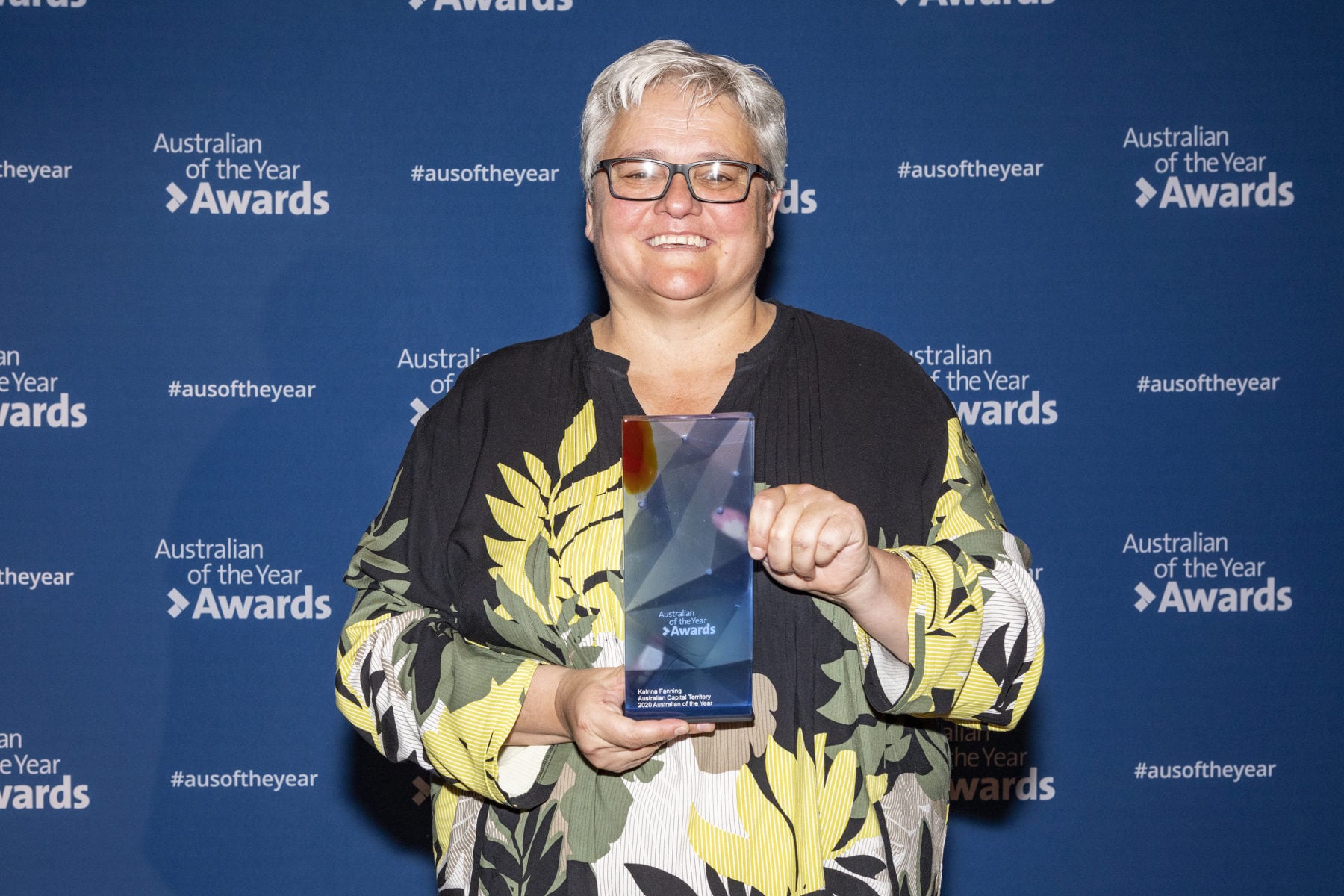
For more than 25 years, Wiradjuri woman Katrina Fanning has lived and breathed rugby league. Following a successful career as a player, she was appointed manager of the Indigenous Women’s All Stars team, Chairperson of the Australian Rugby League Indigenous Council, and President of the Canberra and Australian Women’s Rugby League Associations.
In 2014 she was named Canberra Woman of the Year, and ACT NAIDOC Person of the Year. Then, last year, Katrina was the third woman to be appointed to the Canberra Raiders board of directors.
Katrina brings enormous management capability to the appointment, having worked in senior roles with Centrelink, Aboriginal Hostels Limited, and the Australian Department of Education, Employment and Workplace Relations, as well as holding positions on various committees and boards. She believes that the ACT can lead the way nationally for Aboriginal and Torres Strait Islander people outcomes, in creating and leading their own solutions.
Professor Munjed Al Muderis, NSW
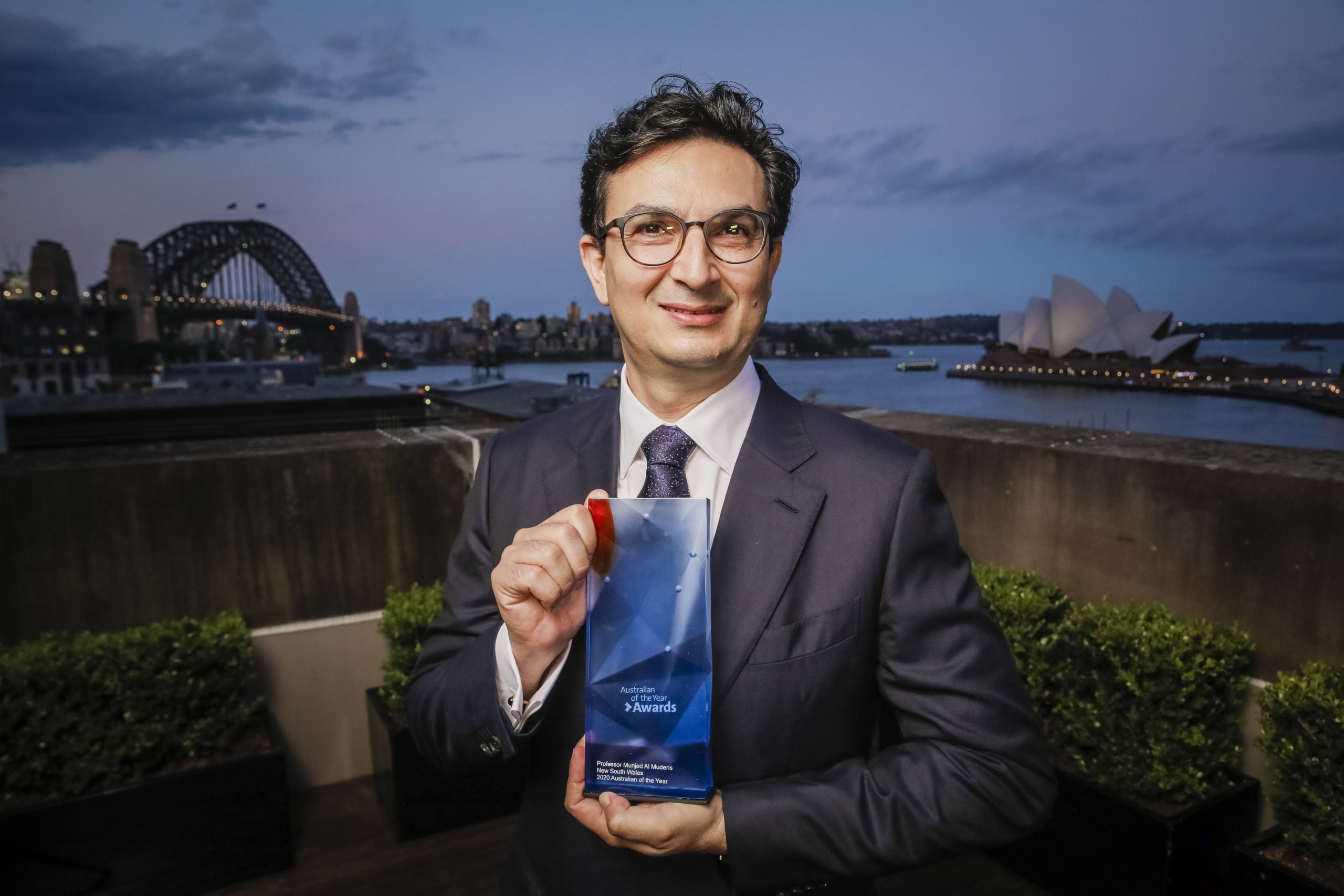
After fleeing the tyranny of Saddam Hussein’s regime in a leaking boat, Professor Munjed Al Muderis was detained on Christmas Island, then in Curtin Detention Centre in Western Australia. He overcame extraordinary obstacles to become an orthopaedic surgeon, specialising in hip, knee and reconstructive surgery and now advocates for the human rights of others.
A compassionate ambassador for multiple organisations, including the Red Cross, Munjed has taken a team to his former homeland of Iraq seven times, to help the victims of the conflict he fled, and has educated other orthopaedic surgeons in complex limb reconstruction.
His surgical innovations and breakthroughs are helping people throughout the world. Munjed exemplifies the valuable and positive contribution that refugees can make, and what it truly means to be Australian.
Dr Geoffrey Thompson, NT
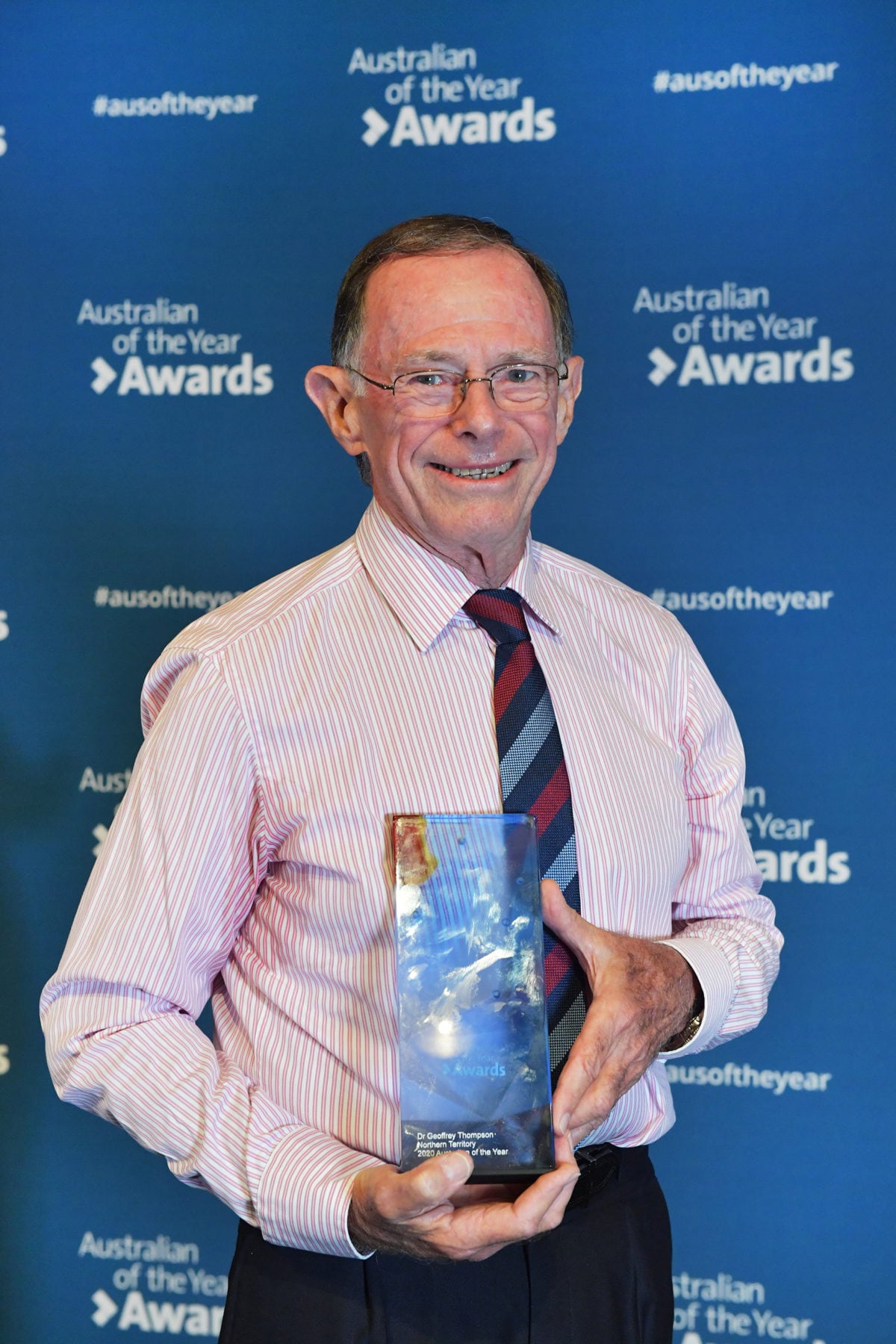
Geoffrey Thompson is one of the Northern Territory’s quiet achievers, with a distinguished career as a flying doctor and history of service to sports medicine and the community.
Born in rural SA, Geoffrey graduated in medicine before joining the Royal Australian Air Force (RAAF) as a flight surgeon and medical officer. In 1974, when Cyclone Tracy devastated Darwin, he oversaw the RAAF effort to evacuate the city. During the days that followed, he helped assess, treat and evacuate severely injured citizens of Darwin – despite having lost his home and possessions.
After leaving the RAAF, he ran general medical clinics in remote Indigenous communities, often using his own plane for transport. As a sports medicine specialist, he was the first president and founding member of Sports Medicine Australia (NT), and since 2008 he has been the chief medical officer for the Australian Paralympic Committee.
Dr James Muecke AM, SA
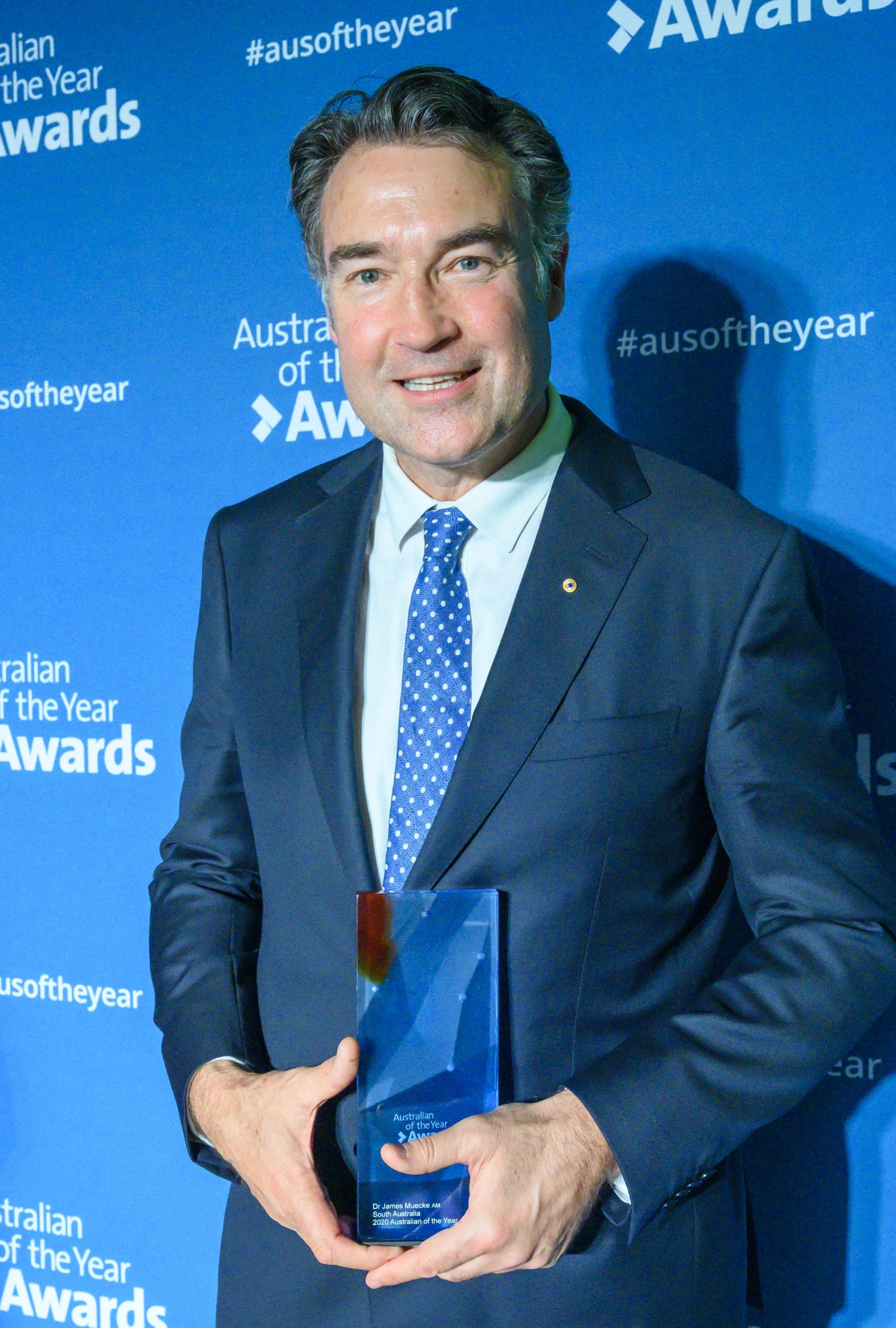
Since starting his medical career in Kenya, Dr James Muecke AM has been passionate about fighting blindness. In 2000 he co-founded Vision Myanmar – which has developed and operated eye health initiatives in that country – at the SA Institute of Ophthalmology.
James also co-founded Sight For All (SFA), a social impact organisation aiming to create a world where everyone can see. With 80 per cent of blindness avoidable, and almost 90 per cent in poor countries, he treats it as a human rights issue.
James creates low-cost programs to fight blindness through research, education and infrastructure, including the comprehensive training of colleagues in SFA partner countries. His leadership has improved eye health and alleviated poverty and disadvantage.
Rachel Downie, QLD
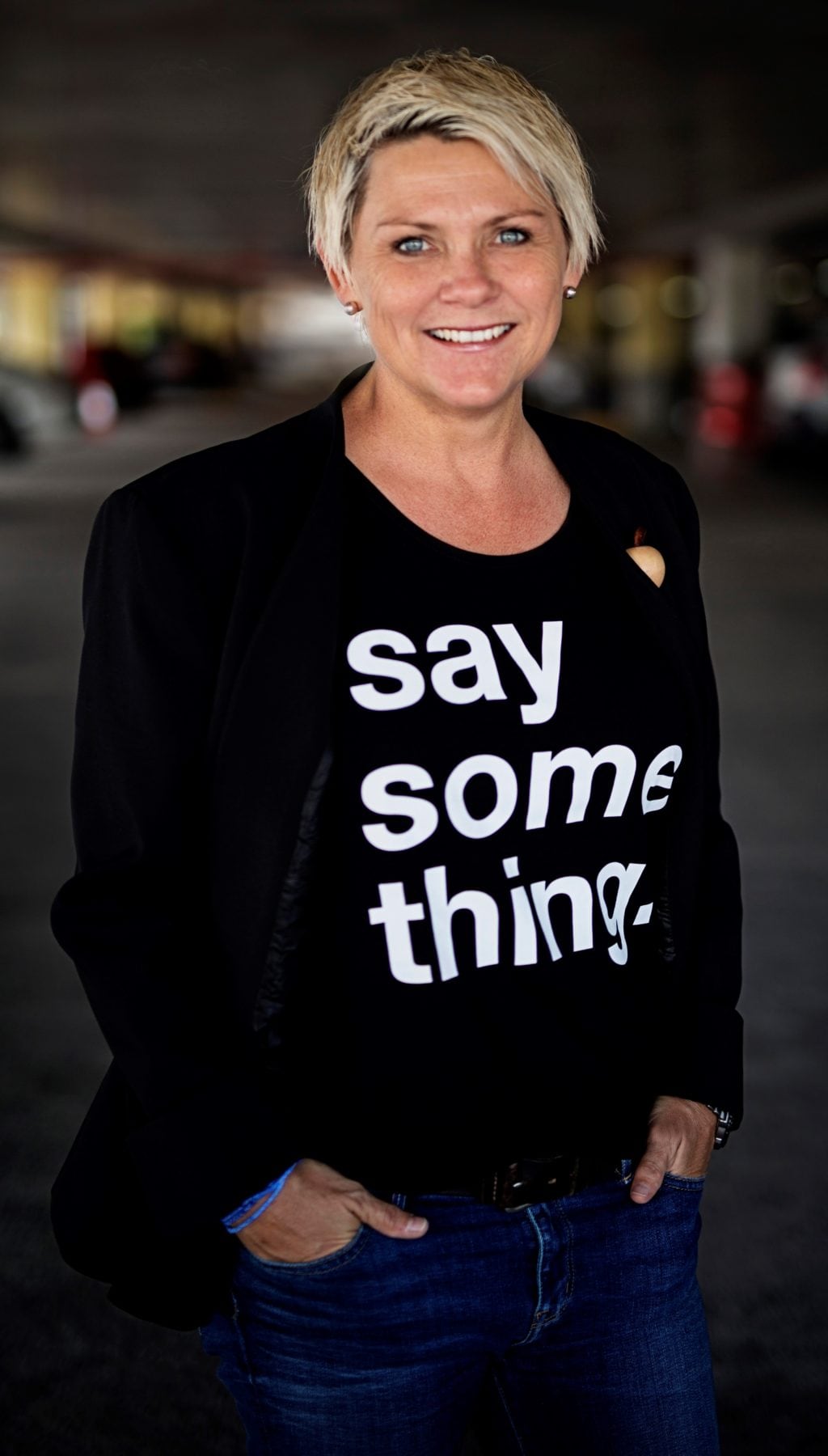
Twenty-five years ago, Rachel Downie became an educator to help young people flourish. After losing a Year 9 student to suicide, she needed to find a way to support young people to say something when things aren’t right. She discovered students often felt too frightened to come forward with possible life-saving information, because of peer expectations. She developed and self-funded Stymie, a website that allows students to anonymously report harm.
Since 2014 she has presented Stymie to more than 300,000 students who are using it to report family violence, bullying, cyber-bullying, depression, illegal activity, harassment, self-harm and harm to their communities.
In 2018 schools using Stymie have received more than 40,000 notifications from concerned students, empowering them to use their empathy and conscience to report harm, and further a culture of care in schools.
Archie Roach AM, VIC
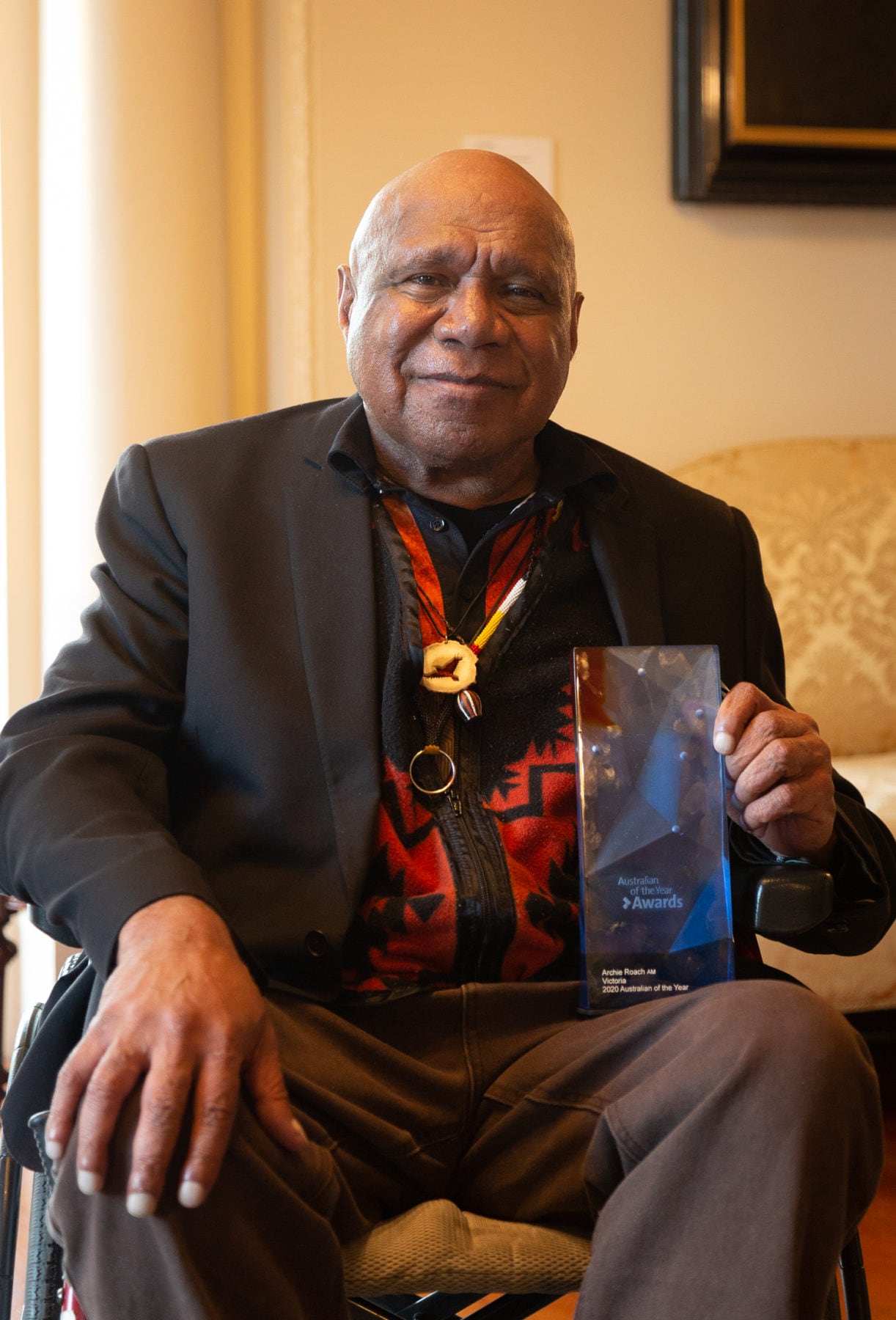
Archie Roach AM is a singer, songwriter, musician and campaigner for the rights of Indigenous Australians. After being forcibly removed from his family at age two, he has overcome teenage alcoholism and homelessness – and the 2010 death of his beloved wife, Ruby – to become an Australian music legend.
In 1992 he won two ARIA Awards for his 1990 debut album Charcoal Lane. He also received a Human Rights Achievement Award for his iconic Stolen Generations song, Took the Children Away – a first for any songwriter. He has since released 11 more albums and embarked on nationwide and global tours, exploring issues that affect Indigenous people in modern Australia.
Today he runs the Archie Roach Foundation, which looks to improve opportunities for young Indigenous people through art and culture. Archie’s work spreads a powerful message of love, reconciliation and healing.
Annie Fogarty AM, WA
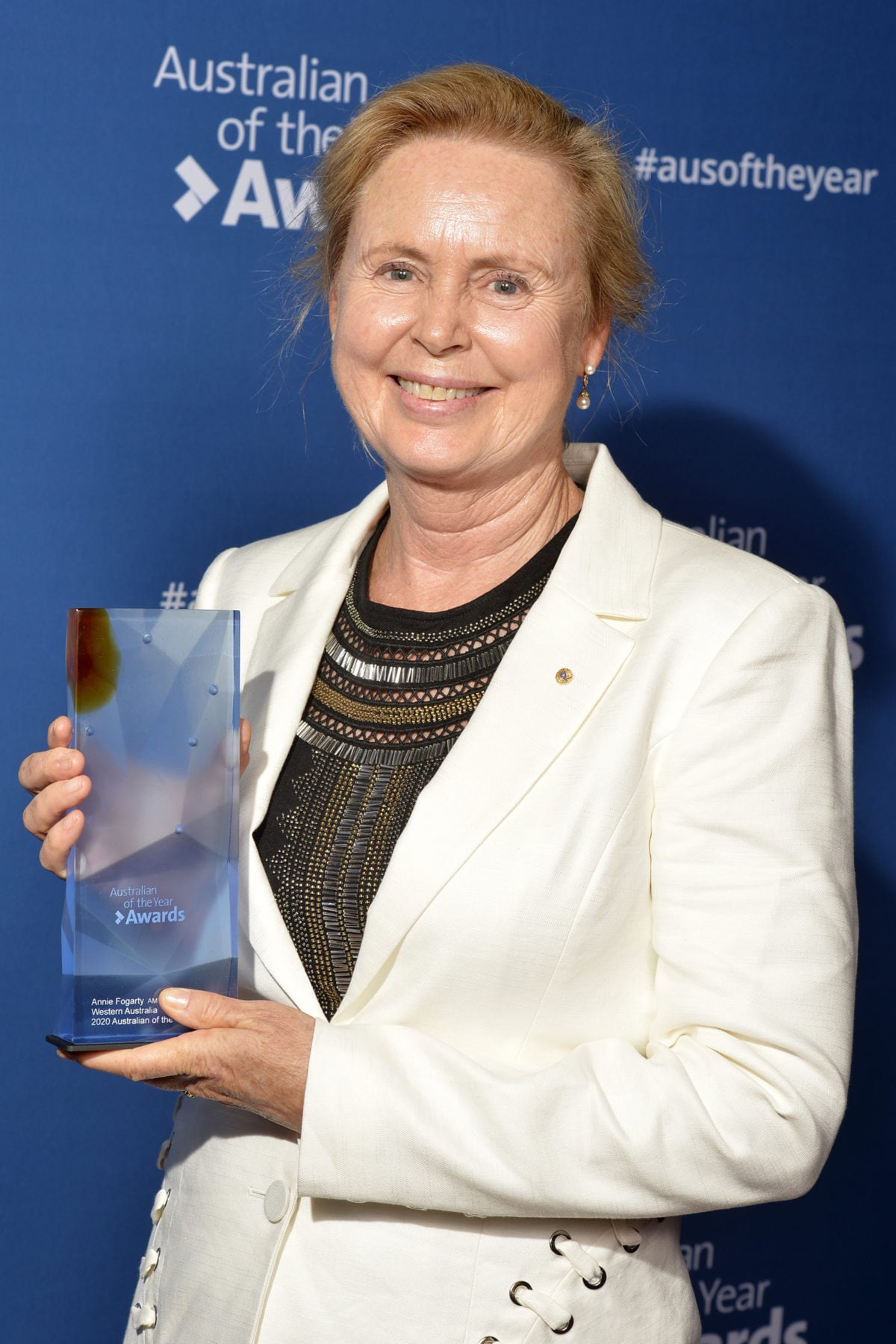
With her husband, Brett, Annie Fogarty AM founded the Fogarty Foundation in 2000 to help advance education, support young people to reach their full potential and to build stronger communities.
Under Annie’s leadership, the foundation identifies areas of need, supports partner organisations with philanthropic funds, connections and knowledge, and develops initiatives that deliver educational opportunities, inspire leadership and enrich lives. The foundation enhances excellence in schools by investing in education programs, teachers and school leaders.
Through the foundation, Annie has developed the Fogarty EDvance program, which improves the educational outcomes of children who attend schools in lower socio-economic communities. The foundation’s scholarship program for tertiary students provides financial support, a leadership program, enrichment opportunities and supportive networks to help develop future leaders. Annie is also involved with several organisations that help foster innovation and creativity in young people, and is committed to ensuring excellent education for all.
